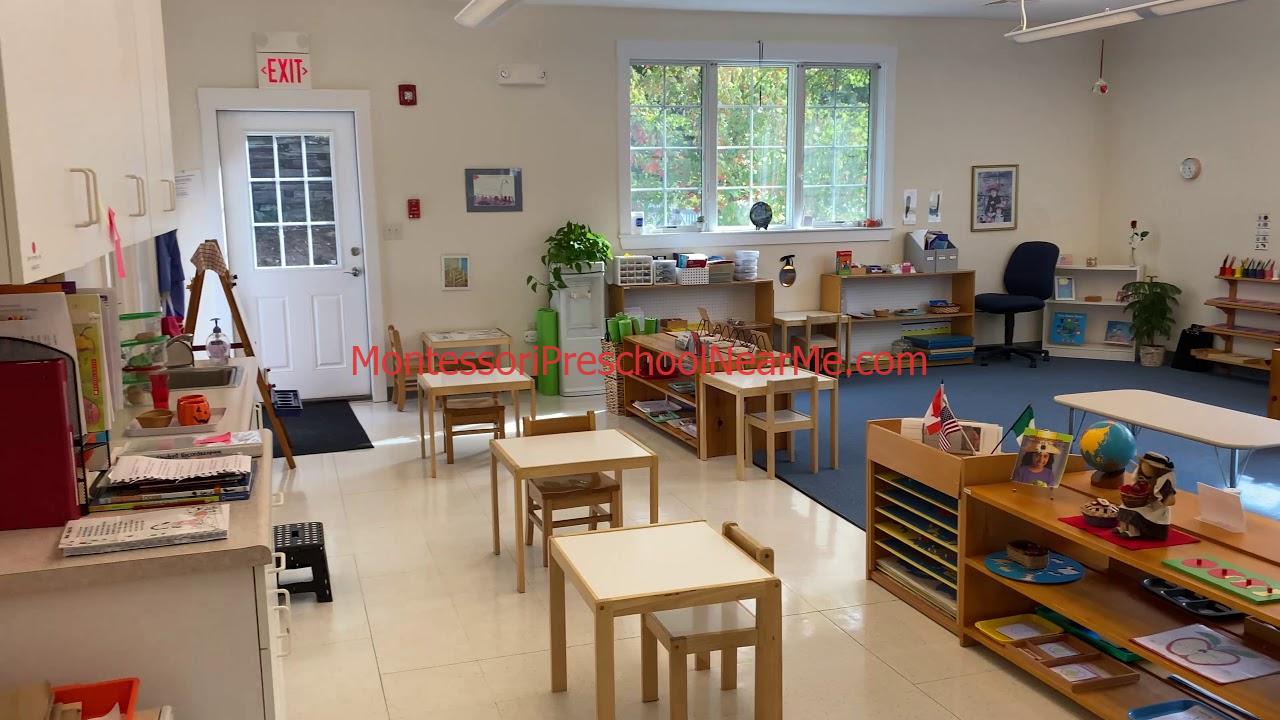
Are you passionate about education and eager to make a positive impact on young children’s lives? Starting your own Montessori preschool can be a rewarding and fulfilling journey that allows you to create a nurturing and stimulating learning environment. In this comprehensive guide, we will take you through the step-by-step process of opening a Montessori preschool, from obtaining the necessary certifications and navigating local regulations to developing a curriculum, selecting a location, acquiring equipment, hiring staff, and setting up tuition. Join the thriving community of over 5,000 Montessori schools in the United States and embark on the adventure of a lifetime.
Certification Requirements
Obtaining Montessori Teacher Certification
To start a Montessori preschool, it is essential to have the appropriate Montessori teacher certification. The American Montessori Society (AMS) and the Association Montessori International (AMI) are two widely recognized organizations that offer comprehensive Montessori training programs. These programs provide you with the necessary knowledge and skills to implement the Montessori method effectively. Consider enrolling in a certification program that aligns with your goals and preferences.
State Licensing and Accreditation
In addition to Montessori teacher certification, you will need to meet the specific licensing and accreditation requirements set by your state. These regulations ensure that your preschool meets the necessary health, safety, and educational standards. Contact your state’s department of education or childcare licensing agency to gather detailed information about the requirements and the application process.
Understanding Local Regulations
Zoning and Building Permits
Before setting up a Montessori preschool, it is crucial to understand the zoning regulations and building permits in your area. Ensure that the location you choose is zoned for educational purposes. You may need to obtain building permits and undergo inspections to ensure compliance with safety codes and regulations. Consult with your local planning and zoning department to navigate these requirements successfully.
Health and Safety Regulations
Creating a safe and healthy environment is of utmost importance when starting a preschool. Familiarize yourself with the health and safety regulations specific to childcare facilities in your area. These regulations may cover areas such as staffing ratios, first aid and CPR training, emergency preparedness, and sanitation practices. Adhering to these regulations promotes the well-being of the children in your care and helps maintain a positive reputation in the community.
Creating a Business Plan
Market Research and Analysis
Conducting thorough market research is crucial for the success of your Montessori preschool. Identify the target demographic in your area and assess the demand for high-quality early childhood education. Analyze the competition and understand their strengths and weaknesses. Use this information to differentiate your preschool and develop a unique value proposition.
Establishing a Budget
Creating a realistic budget is essential to manage your finances effectively. Consider the costs associated with leasing or purchasing a facility, acquiring furniture and equipment, hiring and training staff, marketing and advertising expenses, and ongoing operational costs. Ensure that your budget accounts for any unforeseen expenses and allows for sustainable growth.
Marketing and Enrollment Strategies
Developing a comprehensive marketing and enrollment strategy is crucial to attract parents and fill your preschool’s capacity. Utilize both online and offline channels to create awareness and generate interest. Develop a visually appealing website, establish a strong social media presence, and collaborate with local parenting groups and organizations. Offer open houses and informational sessions to showcase your school and build trust with prospective parents.
Developing a Montessori Curriculum
Understanding the Montessori Method
The Montessori method is based on the belief that each child has an innate love of learning and should be allowed to learn at their own pace. Understanding the principles and philosophy of Montessori education is essential to develop an effective curriculum. Emphasize hands-on learning, individualized instruction, and a prepared environment that encourages exploration and independence.
Creating a Comprehensive Curriculum Framework
Design a curriculum framework that incorporates all areas of child development, including practical life skills, sensorial exploration, language and literacy, mathematics, science, geography, and cultural studies. Ensure that your curriculum aligns with Montessori principles and promotes a holistic approach to education. Develop a yearly curriculum plan and detailed lesson plans that provide a balance of structured activities and open-ended exploration.
Incorporating Montessori Materials and Manipulatives
Montessori materials and manipulatives play a vital role in fostering independent learning and exploration. Invest in high-quality materials that align with the different areas of your curriculum. These materials should be carefully selected to promote self-correction, problem-solving, and critical thinking skills. Provide an organized and aesthetically pleasing environment where children can easily access and engage with these materials.
Selecting the Perfect Location
Assessing Space Requirements
When selecting a location for your Montessori preschool, consider the space requirements needed to accommodate educational areas, outdoor play areas, administrative offices, and facilities for staff and parents. Ensure that the space is safe, accessible, and conducive to learning. Consider proximity to residential areas, parking availability, and the overall ambiance of the surroundings.
Lease or Purchase Considerations
Decide whether you want to lease or purchase a property for your preschool. Leasing offers flexibility, lower initial costs, and fewer long-term commitments. Purchasing provides stability and the opportunity to build equity. Evaluate the pros and cons of each option and choose the one that aligns with your long-term goals and financial capabilities.
Accessibility and Safety
Ensure that your chosen location is easily accessible for parents and staff. Consider proximity to major roads, public transportation, and residential neighborhoods. Assess the safety measures in the area, such as traffic flow, pedestrian safety, and the presence of nearby emergency services. The safety and security of your preschool should be a top priority.
Acquiring Equipment and Materials
Montessori Materials and Manipulatives
Investing in high-quality Montessori materials and manipulatives is crucial to provide an authentic Montessori learning experience. These materials should be designed to foster independence, exploration, and hands-on learning. Purchase materials from reputable suppliers or consider creating your materials using DIY resources available online.
Classroom Furniture and Supplies
Equip your classrooms with child-sized furniture, including tables, chairs, shelves, and storage units. Ensure that the furniture is safe, durable, and easy to clean. Stock up on art supplies, educational toys, books, and other learning resources that align with the Montessori curriculum. Create a warm and inviting environment that stimulates children’s curiosity and encourages active engagement.
Hiring Qualified Staff
Montessori Trained Teachers
Recruit Montessori trained teachers who are passionate about the philosophy of Montessori education. Look for individuals with certifications from reputable Montessori training programs such as AMS or AMI. Conduct thorough interviews and observe teaching demonstrations to assess candidates’ knowledge, experience, and teaching style. Prioritize hiring individuals who demonstrate a deep understanding of the Montessori method and a commitment to fostering a love of learning in young children.
Support Staff and Administrators
In addition to teachers, your preschool will require support staff and administrators to ensure smooth operations. Hire individuals with experience in early childhood education administration, finance, and marketing. Consider their qualifications, interpersonal skills, and dedication to the mission and values of your preschool.
Setting up Tuition and Financial Planning
Pricing and Fee Structure
Determining the appropriate tuition fees for your Montessori preschool can be challenging. Consider factors such as your operational costs, staff salaries, rental or mortgage expenses, maintenance costs, and desired profit margins. Research the market and assess the pricing strategies of other Montessori schools in your area. Find a balance between affordability for parents and financial sustainability for your preschool.
Financial Planning and Budgeting
Develop a solid financial plan that encompasses both short-term and long-term goals. Create a budget that covers all expenses, including staff salaries, rent or mortgage payments, utilities, maintenance, insurance, and marketing. Set realistic financial targets and regularly review your financial performance to make informed decisions and adjustments.
Conclusion
Embarking on the journey of starting a Montessori preschool is a fulfilling endeavor that allows you to shape the future of young children and make a positive impact on their lives. By following the step-by-step process outlined in this guide, you will be well-equipped to navigate the certification requirements, local regulations, business planning, curriculum development, location selection, equipment acquisition, staff hiring, and tuition setup. Join the thriving community of Montessori educators and create a nurturing environment where each child’s innate love of learning is fostered and celebrated. Start your own Montessori preschool today and witness the joy of children thriving in a complex and ever-changing world.



